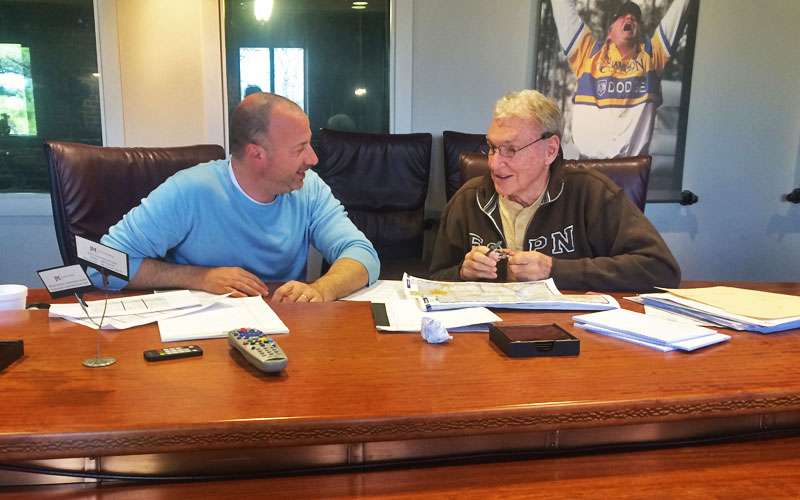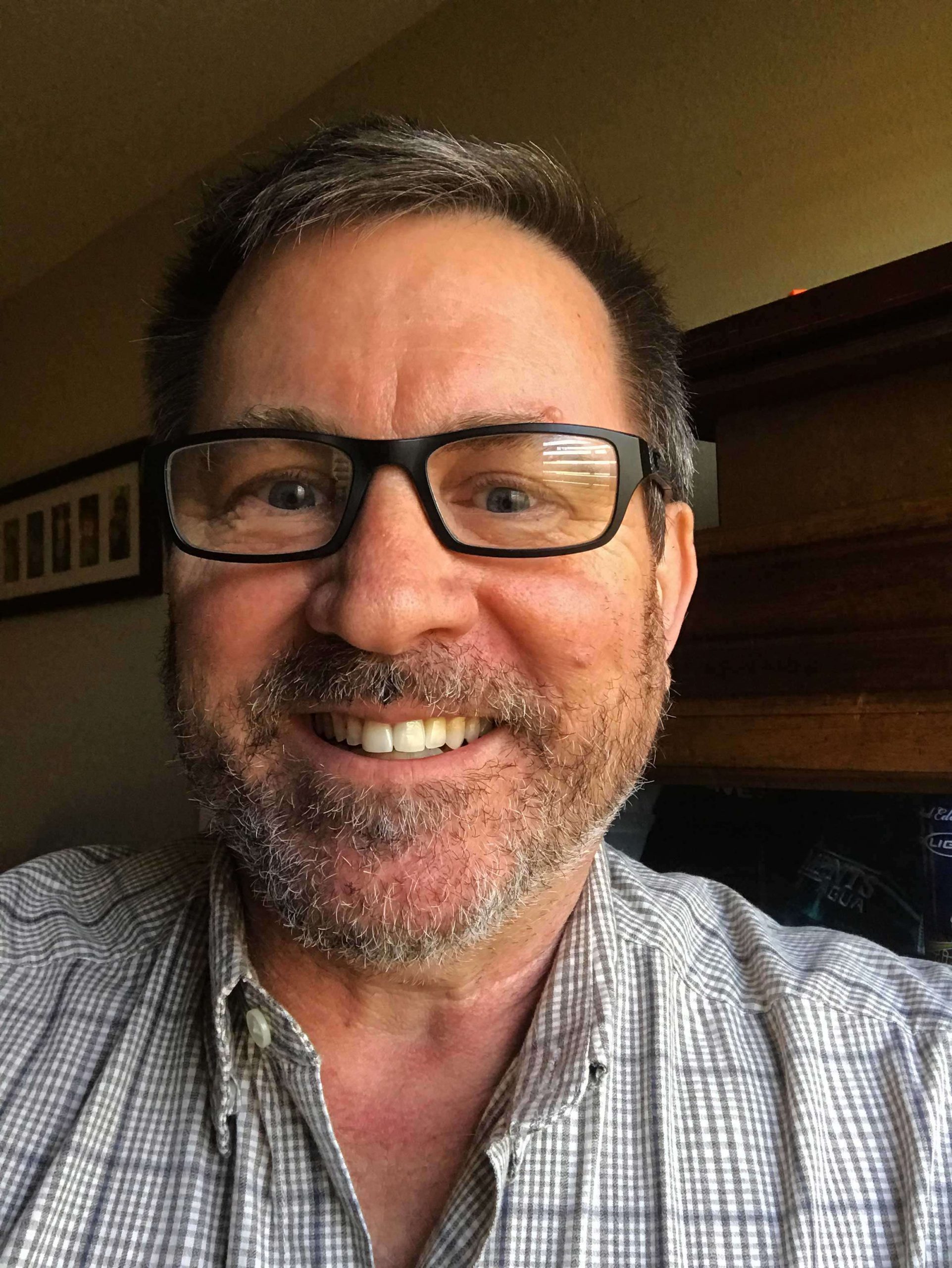
Jerry McKinnis is old school. That’s how he approaches the Bassmaster Elite schedule.
Last January, he spread out at the conference room table at JM Associates determining the 2016 tournament lineup. Culminating months of intel, McKinnis penciled in potential visits on a makeshift spreadsheet – pages from a monthly planner taped together.
“I literally sit here for days putting this together,” McKinnis said. “There’s just so much to it. You have to be in the right lakes at the right time. There’s holidays, ICAST to work around.”
In the past, he also had to work around the FLW schedule, but the advisory board of anglers told him not to consider it anymore. He didn’t. Three events overlap. A ninth regular season tournament has been added, up one from recent years.
There are eraser marks on the spreadsheet, and it’s not quite set in stone when McKinnis turns it over to Michael Mulone, the B.A.S.S. director of event and tourism partnerships.
“It literally takes a year,” McKinnis said. “Most of the time I get it how I want it, and Mike will actually start calling and making agreements.”
One of the most-traveled staffers at B.A.S.S., Mulone goes on site surveys and meets with officials from cities, tourism groups and chambers of commerce. He said sports travel is an industry to itself, and he’s become well-versed in finding destinations that really want to host bass fishing tournaments.
“We obviously know the lakes,” Mulone said, giving a nod to McKinnis’ fishery knowledge, “but it’s my job to make the arrangements with the cities to host us.
“It’s somewhat different for us. We need a healthy bass fishery that can host a professional level tournament as well as the facilities to have a community festival that will help us draw a crowd and keep a crowd.”
Starting with ESPN, Mulone has worked on scheduling B.A.S.S. tournaments the past 10 years, and said while things are done a bit differently now, he finds his mission rewarding.
“I still love it. It’s still fun to do, because we keep growing it,” he said. “That’s the cool part about it — it’s not the same thing. A tweak here and there, we keep doing new stuff.
“Most people think it’s just an easy plotting of tournaments, and a lot of the anglers do, too. We would like to throw some darts once in awhile and see what sticks, but there’s a lot that goes into it. In the last three or four years, we’ve really put together some really nice schedules.”
While on the tournament side, anglers and fans might look at a successful event from total fish weights, Mulone’s telling totals point more toward attendance. The Elite Series has set attendance records each of the past three seasons, with individual site records passing back and forth between the Sabine and St. Lawrence events.
“Nobody thought Orange, Texas, would have been as great as it is, and the anglers love going there,” he said. “As difficult as the fishery is, we have had our biggest crowds there. No one ever heard of Waddington, N.Y., but we put that place on the map by going there. The same thing happened at our first Elite event in 2006 in Del Rio, Texas. Now everybody knows about Del Rio.”
Yet there’s no pleasing everyone, Mulone knows. He sees and hears the complaints, like why no tournaments out West, even after this year’s Western Swing. And there’s always those who want their lakes visited.
“The biggest thing that people need to know, that as much as we are doing tournaments, this is a business,” he said. “The reasons why we choose a lake go beyond just the quality of the fishery. We have our sponsors that we want to make sure are interacting with our fans. We need to have great content for our different platforms, and we want to broaden our brand and reach new places.
“So it’s a combination of trying to do what’s right for our business first, go to the best places at the best times, and have everything match. That’s why it takes so long to do it. We put a lot of care and concern into it to make it the best each and every year.”
 There are even some anglers who lament certain lakes, but the schedule is created with hopes of testing the field in a variety of tactics over the season, providing a true test to determine the Toyota Bassmaster Angler of the Year.
There are even some anglers who lament certain lakes, but the schedule is created with hopes of testing the field in a variety of tactics over the season, providing a true test to determine the Toyota Bassmaster Angler of the Year.
While visiting Florida lakes in the spring and Northern fisheries in summer seems intuitive, there are several fisheries, like Guntersville and Sam Rayburn, that could be placed almost anywhere on the schedule. B.A.S.S., as well as the communities, certainly don’t want the fishing too difficult; they all hope for an enthralling derby.
“We want to have good competition,” Mulone said. “And we don’t want to always go to sight fishing, ledge, tidal water or smallmouth lakes. We want to mix it up so each angler can be tested in diverse types of fishing.”
As a whole, the schedule is something Mulone is proud of. There are new venues, which tops a list of four main considerations. Places B.A.S.S. hasn’t been to for a year or more is next, with cities clamoring for an event third.
“Four, we also reach out to our anglers at the pro level, and right down to the Nation level, to find out what the hot fisheries are,” Mulone said. “We heard this is fishing really good. We heard this is on a downward trend, we might want to stay away for a bit.
“So you combine those things together and that is really the component of trying to make the schedules work. Of course, next is getting contracts with the cities to make it happen.”
The 2016 season kicks off with the GEICO Bassmaster Classic at Grand Lake O’ the Cherokees with Tulsa as the host city. It’s a repeat venue from 2013. Securing Classic sites requires 10 times the considerations of a regular season event, Mulone said. (Story to come closer to March 4-6 Classic.)
There are several recent repeat venues on this year’s schedule, like St. Johns, Cayuga and Toledo Bend. The new venues are Winyah Bay in South Carolina and Norfork Lake in northern Arkansas, a dual-lake tournament with Bull Shoals.
Two events, BASSfest and the Toyota AOY Championship, have set dates but the locations are yet to be announced, although Mulone is working to finalize those “important events.”
“We didn’t want to rush it. We want to do it right,” he said. “We have a good bead, just putting it all together. We want to drive the industry as much as our business. The last thing we want to do is make a hasty decision.”
Hasty decisions don’t come into play as work on the schedule continues year-round. The onus increases for Mulone, McKinnis said, as he has to schedule the Opens and College events around the Elites with minimal overlap.
“I’m his worst nightmare,” McKinnis said.
“Naw,” said Mulone, who soon after asked to have his photo shot with McKinnis. “I don’t have one with just him and me.”
The 2016 schedule | Photos of the Elite venues





